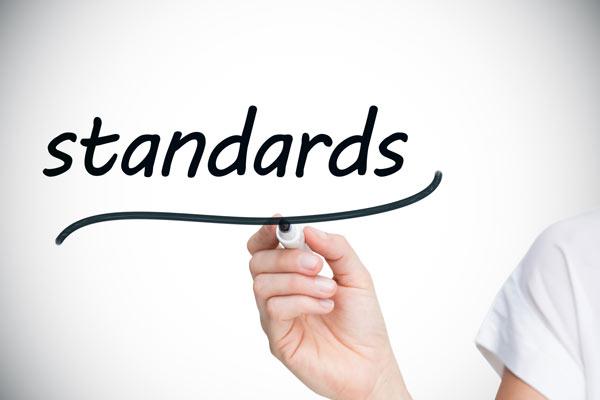October 14, 1946 saw the creation of an international organization focused on facilitating standardization when delegates from 25 countries first gathered in London for this purpose

World Standards Day, World Standards Day Special, 14th October, business standards, International standards, ISO, International Electrotechnical Commission (IEC), International Organization for Standardization (ISO), International Telecommunication Union
October 14, 1946 saw the creation of an international organization focused on facilitating standardization when delegates from 25 countries first gathered in London for this purpose.
From that day onwards it was been celebrated internationally every year by honouring the efforts of the thousands of experts who develop voluntary standards within standards development organizations, which include...
ADVERTISEMENT

Pic for representational purposes
International Electrotechnical Commission IEC: Formed on 26 June 1906, it is a non-profit, non-governmental international standards organization that prepares and publishes International Standards for all electrical, electronic and related technologies – collectively known as "electrotechnology" covering a vast range of technologies from power generation, transmission and distribution to home appliances and office equipment, semiconductors, fibre optics, batteries, solar energy, nanotechnology and marine energy as well as many others. The IEC also manages three global conformity assessment systems that certify whether equipment, system or components conform to its International Standards.
International Organization for Standardization ISO: This international standard-setting body, which was founded on 23 February 1947, is composed of representatives from various national standards organizations and promotes worldwide proprietary, industrial and commercial standards. Headquartered in Geneva, Switzerland it works in 164 countries as of 2014 and was one of the first organizations granted general consultative status with the United Nations Economic and Social Council.
International Telecommunication Union ITU: Originally known as the International Telegraph Union, it is a specialized agency of the United Nations UN based in Geneva Switzerland, that is responsible for issues that concern information and communication technologies. It was formed on 17th May 1865 and coordinates the shared global use of the radio spectrum, promotes international cooperation in assigning satellite orbits, works to improve telecommunication infrastructure in the developing world, and assists in the development and coordination of worldwide technical standards. The ITU is active in areas including broadband Internet, latest-generation wireless technologies, aeronautical and maritime navigation, radio astronomy, satellite-based meteorology, convergence in fixed-mobile phone, Internet access, data, voice, TV broadcasting, and next-generation networks.
ITU also organizes worldwide and regional exhibitions and forums, such as ITU TELECOM WORLD, bringing together representatives of government and the telecommunications and ICT industry to exchange ideas, knowledge and technology.
It has been an intergovernmental public-private partnership organization since its inception. Its membership includes 193 Member States and around 700 public and private sector companies as well as international and regional telecommunication entities, known as Sector Members and Associates, which undertake most of the work of each Sector.
Institute of Electrical and Electronics Engineers IEEE: Formed in January 1 1963, from the amalgamation of the American Institute of Electrical Engineers and the Institute of Radio Engineers, it is a professional association with its corporate office in New York City and its operations center in Piscataway, New Jersey. Today it is the world-s largest association of technical professionals with more than 400,000 members in chapters around the world. Its objectives are the educational and technical advancement of electrical and electronic engineering, telecommunications, computer engineering and allied disciplines.
Internet Engineering Task Force IETF: Formed in 16 January 1986 this organisation develops and promotes voluntary Internet standards, in particular the standards that comprise the Internet protocol suite TCP/IP and is an open standards organization, with no formal membership or membership requirements. All participants and managers are volunteers, though their work is usually funded by their employers or sponsors.
The IETF started out as an activity supported by the US federal government, but since 1993 it has operated as a standards development function under the auspices of the Internet Society, an international membership-based non-profit organization.
The aim of World Standards Day is to raise awareness among regulators, industry and consumers as to the importance of standardization to the global economy.
 Subscribe today by clicking the link and stay updated with the latest news!" Click here!
Subscribe today by clicking the link and stay updated with the latest news!" Click here!






